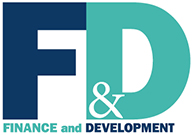Straight Talk
A Two-Way Street
Finance & Development, December 2016, Vol. 53, No. 4
Policymakers must address economic and political issues to strengthen globalization

Rising doubt and discontent about globalization threaten the economic and political foundations of our international order. With much of that discontent focused on trade and openness, we risk a retreat from the cooperation that helped build an era of unprecedented prosperity.
World leaders must confront this issue head-on, beginning with discussion of the political economy underlying the current debate. The recent U.K. Brexit vote and U.S. elections stand out, but there are examples in many other countries. Slow growth, high unemployment, and rising income inequality since the global financial crisis are feeding the discontent.
The situation presents a unique challenge for economic policymakers, and for us at the IMF. For too long, our deliberations and decisions have not fully taken into account political ramifications.
We now see that politics and economics are a two-way street. We must grapple with today’s complex political risks. But how we respond to the looming economic challenges of our time—slow growth, income and gender inequality, evolving technology, and demographic change—will profoundly influence the politics of tomorrow.
Today’s risks include:
● Threats from within, such as dissatisfaction with the global order, that are at the forefront of the current debate. Popular dismay over lack of income growth, job loss, and social dislocation has upended the politics of many advanced economies with startling speed.
● Abuses such as corruption, favoritism, and mismanaged governance, which are destroying confidence in the democratic process and calling into question the legitimacy of the political and economic elite.
● Threats from outside the system: terrorism; the breakdown of nation states and the emergence of nonstate actors; refugee flows; and computer hacking and other cross-border crimes. Corporations have stepped into new and significant roles. They compile more data than any government; operate not only across borders, but also in the cloud; and use data to influence public opinion and behavior.
Meanwhile, the geopolitical ground is shifting under the international community. China and other emerging economic powers, such as Brazil, India, and Russia, are demanding a stronger voice and are moving to set up multilateral institutions that better reflect their growing weight in the global economy. Existing institutions—including the IMF—are adjusting to these new realities.
This is not a moment for business as usual. It is a time for leadership and international cooperation, which must go hand in hand. Many of these seemingly intractable problems transcend borders, and national leaders would be hard-pressed to deliver what their people want without such cooperation. Cooperative mechanisms—in established multilateral institutions, via the G20 and other political forums, and even through new institutions such as the Asian Infrastructure Investment Bank—can help achieve the promise of globalization and limit its harm. Effective cooperation will help leaders thwart their countries’ populist backlash.
We saw leadership through cooperation in the response of governments to the global financial crisis. Leaders adopted policies to put out financial fires at home and found strength in a new channel of government collaboration through the Group of 20 advanced and developing economies, the IMF, and other institutions.
Responding to today’s challenges ultimately boils down to the right policies. We must focus first on stronger growth: a larger slice of the pie for everyone calls for a bigger pie. Second, more inclusive economic growth demands policies that address the needs of those who lose out from a financial crisis or technological change or globalization. Otherwise our political problems will only deepen.
The IMF can help strengthen both cooperation and policies. We can identify the economic policy changes that are needed in each country to build growth momentum, and perhaps do a better job of understanding some of the political ramifications. It is crucial that we resist the forces of fragmentation. Given the threats we face, the international community has more to gain from cooperation than ever before. ■
Opinions expressed in articles and other materials are those of the authors; they do not necessarily reflect IMF policy.


